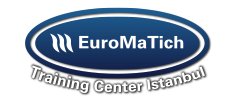Overview:
Introduction:
Effective strategic leadership is primary to the future success of any organization. This starts with defining a clear strategic vision – setting out the leadership team’s strategic intent for the organization and its various businesses. This then needs to be translated into an agenda for action – not merely a ‘strategic plan’ but a set of guidelines or a road map setting out where the business needs to go and empowering managers at all levels to make the multitude of decisions that they need to make in the clear understanding of where the business is heading.
Course Objectives:
At the end of this course the participants will be able to:
- Refining and developing participants’ capabilities on how to apply best practices and methodologies related to strategic planning and developing strategic plans according to the standards of the European Excellence Model EFQM
- Motivate people towards the strategic ‘light on the hill’!
- Change their environment to support your new strategic initiatives.
- Find new approaches to old problems in their organization strategies.
- Implement a plan using all the resources at their disposal.
- Record, analyze, and evaluate the organization’s strategy in accordance with quality standards.
- Formulating and developing a strategy and plans that are compatible with the requirements of the internal and external environment and the quality of performance.
- Implementing of stages and steps of strategic management according to models of excellence.
Targeted Audience:
- Head of departments
- Managers among all managerial levels
- Supervisors and Team leaders
- Strategic Planning department
- Employees who want to gain new crucial skills to improve their career path
Course Outlines:
Unit 1: European Excellence Model: Basic Introductions.
- A brief history of EFQM.
- European Excellence Model as a Global Model.
- Establishment’s evaluation system calculating the criteria of the Excellence Model.
- Managing Excellence and the European Model of Excellence.
- Equation of Excellence and Quality Awards.
Unit 2: Excellence Model Standards (EFQM):
- The first criterion – leadership.
- The second criterion – policies and strategies.
- The third criterion – human resources.
- Forth Standard – Resources.
- Fifth Standard – Operations.
- Sixth Standard – Customer Results.
- Standard 8 – Community Outcomes.
- Standard IX – Human Performance Results.
Unit 3: Developing The Strategy:
- The relationship between strategy and excellence model.
- Vision development.
- Mission development and directions.
- Development of plans and programs.
- Development of implementation mechanisms according to the comprehensive quality.
Unit 4: Building Strategy and Organizational Excellence:
- External climate analysis.
- Internal climate analysis.
- Define strategic directions.
- Define strategic goals.
- Formulating and forming the strategy and the strategic and tactical plans implemented for it.
- Implement the strategy.
- Follow-up, evaluation, and updating of the strategy.
Unit 5: Strategic Planning
- Creative planning.
- Concept Planning.
- Benefits of planning.
- Tactic and strategy.
- Components and elements of creative planning.
- Types of planning.
- Practical exercise.
Unit 6: Strategic Planning And Quality Management:
- The concept of strategic planning.
- Strategic planning and challenges of international competition.
- Characteristics of strategic planning.
- Advantages of strategic planning.
- Porter and Strategic Planning.
- Strategic planning and quality.
Unit 7: Effective Planning:
- Steps and stages of the planning process.
- Obstacles to the planning process.
- Creative tools and means to predict.
- Principles of effective planning (Japanese model).
- Contingency planning (practical case).
Unit 8: Skills Supporting Strategic Planning:
- Control systems.
- Information Systems.
- Systems of strategic incentives.
- Effective communication systems.
- Work teams.
Unit 9: Future Leadership And Strategic Planning:
- Who are the future managers and leaders?
- Future challenges and preparing individuals to face them.
- Japanese experience in preparing future leaders.
- The three models for creative plans.
- Wrong practices in planning for the future.
- Strategic thought and quality planning.
Unit 10: The Strategic Planning And Excellence Management Lab:
- How to develop a business plan for the participant’s department.
- How to avoid errors in the planning process.
- Environmental Impact Survey as a template for strategic planning.
- Laboratory review your past planning experiences.


